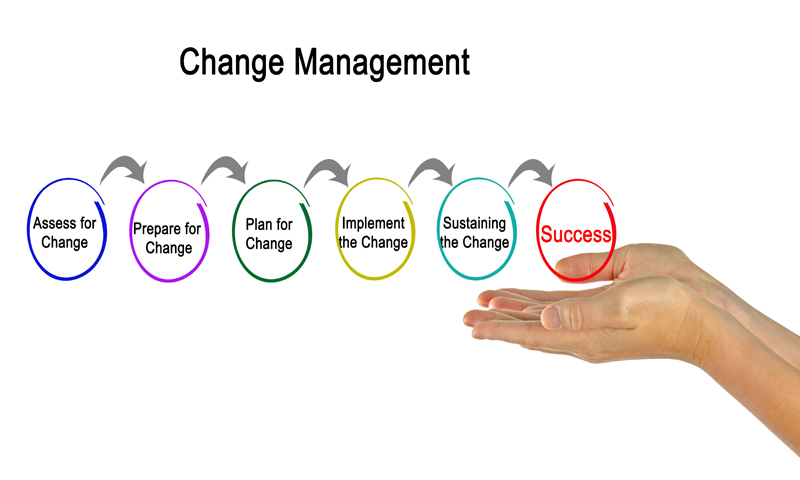
Newly merged firms that are slow to restructure their practice management will consequently be slow to achieve the benefits anticipated in the business case for completing the merger. Some firms approach practice management integration as a series of compromises—picking and choosing the best practices from each firm. However, this can produce an inefficient structure; in a merger, it is critical to be able to get the firm working along firmwide practice group lines as early as possible.
The more merged firms integrate their practices, the better their financial performance. Firms that effectively combine their practice, systems and same-city offices have seen greater financial returns than firms that have taken a more informal approach to their combination.
Law firms are not the only organizations that have difficulty integrating effectively. A KPMG study of the 700 largest corporate mergers between 1996 and 1998 concluded that 83 percent of these mergers failed to raise shareholder value within a year of consummation. The study further noted that merging companies that clearly identified their new management team immediately were 26 percent more likely to increase shareholder value.
By designing a practice management structure during the merger discussion that considers the existing services and client needs of the soon-to-be merged firms, a framework is created that will facilitate the rapid integration of the combined firm. The structure should also have flexibility to allow for future growth and expansion via subsequent acquisitions and lateral hires. Ideally, the new practice management structure should be put into practice as soon as the merger takes effect, or failing that, as early in the integration process as possible.
At the outset of the merger, people will be motivated to make changes by their enthusiasm for the new combination and the anticipated benefits that will result. If the practice management structure is not in place and ready to aid lawyers eager to integrate their practice, they will become frustrated and lose their enthusiasm while waiting for firm management to put a new structure in place.
Basic Concepts
The concept of practice management is not new. Practice management functions include:
- Business planning, including research and development;
- Development and implementation of business plans;
- Development of systems and practices, including applications of technology, form systems and brief banks;
- Work assignment and workload monitoring;
- Supervision of work, service and specialization standards;
- Training and development for all levels of lawyers and staff;
- Mentoring; and
- Quality control and review processes.
Not surprisingly, firms that added significant mass in the 1980s and early 1990s—following a full-service or “all things to all people” strategy—are among the least integrated firms. For firms that fall into this category, it will be especially important to recognize this fact and in the wake of a new merger, develop a narrower core strategy or positioning statement.
Getting Started
The first step in establishing a practice management structure should be to agree on a core strategy—one that will differentiate the firm from its competitors. The next step will be to align each department and practice group within this core strategy and recognize that some areas will play a leading role and others be supporting players.
Why improve your firm's practice management structure?
Simply stated, a strong practice management structure enhances practice group effectiveness in the following areas: leadership, direction, client and market research (to identify growth opportunities), business development, practice integration, professional training and development, practice profitability and knowledge management. More specifically, a strong practice management structure will help a newly merged firm by:
- Enhancing firmwide communications and creating a sense of ownership for all the firm's lawyers. A merger can foster a sense of instability or fear among lawyers about their role in the new firm, the fate of their practice area and more. Strong practice management provides much-needed communication throughout the firm and minimizes confusion and paranoia. In addition, it provides the platform for each group to develop a business plan for itself as well as for individual attorneys. This is especially important because the current scramble for talent has fed the rise in merger activity. Since mergers are undertaken to grow firms, merged firms need a structure that will encourage communication, hopefully deterring the firm's talent poll from being worried or frustrated enough to consider leaving;
- Strengthening the firm's position with new and existing clients and creating demand for new and sophisticated work that the new firm can offer;
- Creating a common strategy that will enhance the stature of the firm's practice and its long-term profitability;
- Enhancing the new firm's competitive position vis-à-vis other major law firms through the focused firm strategy and the business plans implemented by each practice group;
- Providing an infrastructure to capitalize upon recent growth and a platform for future growth; and
- Building a mechanism to develop the next generation of firm leadership.
Establish Foundation
Most firms typically handle practice management along legal practice lines (such as litigation, labor and employment, corporate) or along industry lines (such as health care, real estate, Internet). On the surface, practice management structures from one firm to the next may look the same on paper, but the difference is the foundation necessary to support the proper execution of a practice management structure. Practice management is the equivalent of running multi-million dollar business units of the firm with authority for, or involvement in, everything including profitability and compensation. In order for practice management to work effectively, firms must have the following building blocks in place:
- A strong centralized management team empowered by the partnership with responsibility and authority to make decisions quickly. Centralized management means not only firm leaders (chairman and managing partner), but also practice group leaders and department chairs. Management will need to develop meaningful position descriptions for department chairs and practice group leaders. Practice group leaders should have responsibility and authority over client intake, work assignment, business planning and group profitability, and have significant input regarding the compensation of all lawyers in their practice group.
- Partners willing to be managed. It will be virtually impossible for practice group leaders to do their job unless their partners are willing to be managed. Many firms have instituted practice management systems, but the partners have not accepted neither change in their autonomy nor participation in more team efforts, such as business development. Partners must see that their involvement in the practice group is basic to their role as partner and is essential to the ultimate success of the firm; partners cannot operate as individual practitioners “under one roof.”
- Compensation incentives that reward managers, leaders and mentor/developers in a manner similar to rainmakers. Department chairs and practice group leaders should be rewarded based upon how their group performs as a whole, a deviation from the tendency to reward business development and production efforts on an individual level.
- A one-firm mentality where partners, managers and leaders make decisions about client intake, strategic direction, compensation and allocation of resources for “the good of the firm” rather than to serve individual interests. Though acquisitions can bolster capabilities quickly, they also bring the challenge of quickly creating a one-firm mentality.
- Partners/owners who are held accountable for far more than being profitable over the short term. This includes a significant contribution of non-billable time invested in associate management, recruiting, training and development, market research, business development and knowledge management. This is particularly important as firms realize that a critical competitive advantage for the next decade will be their ability to attract, retain and make profitable young lawyers.
In conclusion, a merger is the perfect time to redesign a practice management structure and fine-tune any foundational matters necessary to support practice management. The benefits of doing so will be felt at multiple levels within the organization from the individual (e.g., increased communication, direction and outlining clear expectations) to the firm's bottom-line (enhanced profitability). By having these building blocks in place, your firm will be in a position to efficiently and effectively maximize the goals laid out in the business case for consummating the merger.
|
How to Hire a Legal Recruiter for Your Law Firm: How Law Firms Recruit Attorneys Using Legal Recruiters |
About Harrison Barnes
No legal recruiter in the United States has placed more attorneys at top law firms across every practice area than Harrison Barnes. His unmatched expertise, industry connections, and proven placement strategies have made him the most influential legal career advisor for attorneys seeking success in Big Law, elite boutiques, mid-sized firms, small firms, firms in the largest and smallest markets, and in over 350 separate practice areas.
A Reach Unlike Any Other Legal Recruiter
Most legal recruiters focus only on placing attorneys in large markets or specific practice areas, but Harrison places attorneys at all levels, in all practice areas, and in all locations-from the most prestigious firms in New York, Los Angeles, and Washington, D.C., to small and mid-sized firms in rural markets. Every week, he successfully places attorneys not only in high-demand practice areas like corporate and litigation but also in niche and less commonly recruited areas such as:
- Immigration Law
- Workers Compensation
- Insurance
- Family Law
- Trust and Estate
- Municipal law
- And many more...
This breadth of placements is unheard of in the legal recruiting industry and is a testament to his extraordinary ability to connect attorneys with the right firms, regardless of market size or practice area.
Proven Success at All Levels
With over 25 years of experience, Harrison has successfully placed attorneys at over 1,000 law firms, including:
- Top Am Law 100 firms such including Sullivan and Cromwell, and almost every AmLaw 100 and AmLaw 200 law firm.
- Elite boutique firms with specialized practices
- Mid-sized firms looking to expand their practice areas
- Growing firms in small and rural markets
He has also placed hundreds of law firm partners and has worked on firm and practice area mergers, helping law firms strategically grow their teams.
Unmatched Commitment to Attorney Success - The Story of BCG Attorney Search
Harrison Barnes is not just the most effective legal recruiter in the country, he is also the founder of BCG Attorney Search, a recruiting powerhouse that has helped thousands of attorneys transform their careers. His vision for BCG goes beyond just job placement; it is built on a mission to provide attorneys with opportunities they would never have access to otherwise. Unlike traditional recruiting firms, BCG Attorney Search operates as a career partner, not just a placement service. The firm's unparalleled resources, including a team of over 150 employees, enable it to offer customized job searches, direct outreach to firms, and market intelligence that no other legal recruiting service provides. Attorneys working with Harrison and BCG gain access to hidden opportunities, real-time insights on firm hiring trends, and guidance from a team that truly understands the legal market. You can read more about how BCG Attorney Search revolutionizes legal recruiting here: The Story of BCG Attorney Search and What We Do for You.
The Most Trusted Career Advisor for Attorneys
Harrison's legal career insights are the most widely followed in the profession.
- His articles on BCG Search alone are read by over 150,000 attorneys per month, making his guidance the most sought-after in the legal field. Read his latest insights here.
- He has conducted hundreds of hours of career development webinars, available here: Harrison Barnes Webinar Replays.
- His placement success is unmatched-see examples here: Harrison Barnes' Attorney Placements.
- He has created numerous comprehensive career development courses, including BigLaw Breakthrough, designed to help attorneys land positions at elite law firms.
Submit Your Resume to Work with Harrison Barnes
If you are serious about advancing your legal career and want access to the most sought-after law firm opportunities, Harrison Barnes is the most powerful recruiter to have on your side.
Submit your resume today to start working with him: Submit Resume Here
With an unmatched track record of success, a vast team of over 150 dedicated employees, and a reach into every market and practice area, Harrison Barnes is the recruiter who makes career transformations happen and has the talent and resources behind him to make this happen.
A Relentless Commitment to Attorney Success
Unlike most recruiters who work with only a narrow subset of attorneys, Harrison Barnes works with lawyers at all stages of their careers, from junior associates to senior partners, in every practice area imaginable. His placements are not limited to only those with "elite" credentials-he has helped thousands of attorneys, including those who thought it was impossible to move firms, find their next great opportunity.
Harrison's work is backed by a team of over 150 professionals who work around the clock to uncover hidden job opportunities at law firms across the country. His team:
- Finds and creates job openings that aren't publicly listed, giving attorneys access to exclusive opportunities.
- Works closely with candidates to ensure their resumes and applications stand out.
- Provides ongoing guidance and career coaching to help attorneys navigate interviews, negotiations, and transitions successfully.
This level of dedicated support is unmatched in the legal recruiting industry.
A Legal Recruiter Who Changes Lives
Harrison believes that every attorney-no matter their background, law school, or previous experience-has the potential to find success in the right law firm environment. Many attorneys come to him feeling stuck in their careers, underpaid, or unsure of their next steps. Through his unique ability to identify the right opportunities, he helps attorneys transform their careers in ways they never thought possible.
He has worked with:
- Attorneys making below-market salaries who went on to double or triple their earnings at new firms.
- Senior attorneys who believed they were "too experienced" to make a move and found better roles with firms eager for their expertise.
- Attorneys in small or remote markets who assumed they had no options-only to be placed at strong firms they never knew existed.
- Partners looking for a better platform or more autonomy who successfully transitioned to firms where they could grow their practice.
For attorneys who think their options are limited, Harrison Barnes has proven time and time again that opportunities exist-often in places they never expected.
Submit Your Resume Today - Start Your Career Transformation
If you want to explore new career opportunities, Harrison Barnes and BCG Attorney Search are your best resources. Whether you are looking for a BigLaw position, a boutique firm, or a move to a better work environment, Harrison's expertise will help you take control of your future.
Submit Your Resume Here to get started with Harrison Barnes today.
Harrison's reach, experience, and proven results make him the best legal recruiter in the industry. Don't settle for an average recruiter-work with the one who has changed the careers of thousands of attorneys and can do the same for you.
About BCG Attorney Search
BCG Attorney Search matches attorneys and law firms with unparalleled expertise and drive, while achieving results. Known globally for its success in locating and placing attorneys in law firms of all sizes, BCG Attorney Search has placed thousands of attorneys in law firms in thousands of different law firms around the country. Unlike other legal placement firms, BCG Attorney Search brings massive resources of over 150 employees to its placement efforts locating positions and opportunities its competitors simply cannot. Every legal recruiter at BCG Attorney Search is a former successful attorney who attended a top law school, worked in top law firms and brought massive drive and commitment to their work. BCG Attorney Search legal recruiters take your legal career seriously and understand attorneys. For more information, please visit www.BCGSearch.com.
Harrison Barnes does a weekly free webinar with live Q&A for attorneys and law students each Wednesday at 10:00 am PST. You can attend anonymously and ask questions about your career, this article, or any other legal career-related topics. You can sign up for the weekly webinar here: Register on Zoom
Harrison also does a weekly free webinar with live Q&A for law firms, companies, and others who hire attorneys each Wednesday at 10:00 am PST. You can sign up for the weekly webinar here: Register on Zoom
You can browse a list of past webinars here: Webinar Replays
You can also listen to Harrison Barnes Podcasts here: Attorney Career Advice Podcasts
You can also read Harrison Barnes' articles and books here: Harrison's Perspectives
Harrison Barnes is the legal profession's mentor and may be the only person in your legal career who will tell you why you are not reaching your full potential and what you really need to do to grow as an attorney--regardless of how much it hurts. If you prefer truth to stagnation, growth to comfort, and actionable ideas instead of fluffy concepts, you and Harrison will get along just fine. If, however, you want to stay where you are, talk about your past successes, and feel comfortable, Harrison is not for you.
Truly great mentors are like parents, doctors, therapists, spiritual figures, and others because in order to help you they need to expose you to pain and expose your weaknesses. But suppose you act on the advice and pain created by a mentor. In that case, you will become better: a better attorney, better employees, a better boss, know where you are going, and appreciate where you have been--you will hopefully also become a happier and better person. As you learn from Harrison, he hopes he will become your mentor.
To read more career and life advice articles visit Harrison's personal blog.






